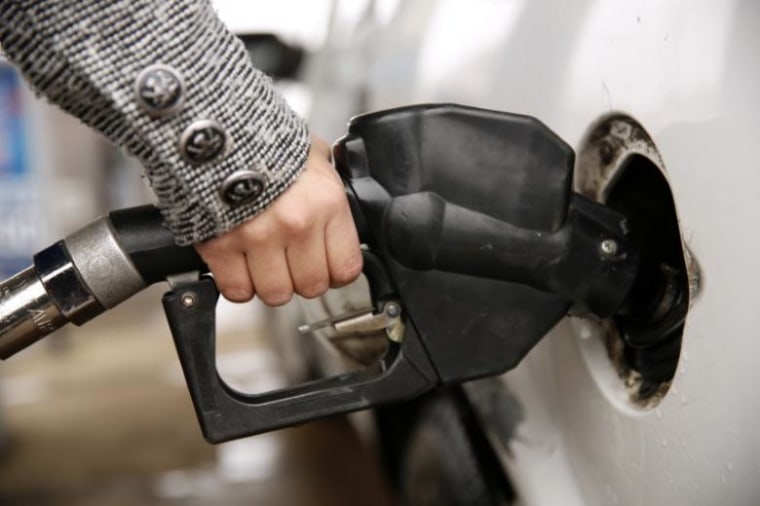With a presidential mandate aimed at government regulations, Scott Pruitt, the new head of the Environmental Protection Agency, is widely expected to roll back rules set during the Obama administration that would have boosted automotive fuel economy standards to 54.5 miles per gallon by 2025.
Such a move would come in response to a written request by a consortium of automakers sent to the new White House last month. It warned that the Corporate Average Fuel Economy, or CAFE, standard, as now written, would “depress an industry that can ill-afford spiraling regulatory costs.”
Proponents of the current fuel economy rules — which were crafted as part of a compromise between the Obama administration and the auto industry — insist the costs cited by the industry are overblown, and that consumers want higher mileage and are willing to pay for it.
Ironically, several automakers note that even if the EPA does roll back CAFE, that would likely have little impact on their future product plans, in part because they would still need to meet tough emissions and mileages standards set in Europe, China, Japan, and other parts of the world.
Re-opening a Closed Deal
The rules, as first established by the industry-government compromise, required a so-called mid-term review that would look at factors including public demand, the availability of technology for meeting the mileage target, and the cost of achieving that goal. The EPA issued a decision just one week before the new Trump administration took office, declaring the industry could achieve the mandate cost-effectively.
Related: Trump and Detroit Automakers Trade Wish Lists
But automakers quickly geared up to get the Trump White House to open the review process back up. Automakers have opposed CAFE since it was first created four decades ago and blocked any significant increases for years, before giving in after Barack Obama was elected. At the time, fuel prices were spiking as high as $4 a gallon and many believed that consumers would downsize to get better mileage, making CAFE easier to reach.
The opposite happened. As fuel prices fell, sales of SUVs, pickups and other light trucks took off. Over the last year, with trucks now accounting for almost two-thirds of U.S. new vehicle sales, improvements in mileage have largely come to a halt, according to monthly data gathered by the University of Michigan Transportation Research Institute.
“I think every (automaker) that produces SUVs and pickups will benefit from (a) rollback,” said Sergio Marchionne, CEO of Fiat Chrysler Automobiles, during a media roundtable at the Geneva Motor Show on Tuesday.
Industry opponents counter that the CAFE rules allow for lower mileage numbers with larger vehicles, such as FCA’s Jeep Grand Cherokee SUV and Ram 1500 pickup. They also note that with various credits and adjustments, the actual mandate would mean a real-world target somewhere in the low-40 mpg range, rather than the official 54.5 figure.
But that doesn’t appear to be swaying a Trump administration calling for sharp reductions in federal rules, especially not with Ford's CEO telling the new president as many as 1 million U.S. jobs are at risk — a figure many observers question.
Can California Still Go Its Own Way?
Some news reports are suggesting that Pruitt might not only roll back the mileage mandate but move to eliminate special provisions that let California set its own emissions standards. Normally tougher than the federal tailpipe targets, they have now been adopted by 12 other states.
"Attacking the California waiver is a recipe for chaos," said Sen. Edward Markey, a Democratic Senator from Massachusetts, one of those states.
"President Trump is waging a war on the environment, and he wants EPA Administrator Scott Pruitt to make our strong fuel economy emissions standards his latest victim," the senator said during a Tuesday news conference. "Undoing the fuel efficiency standards would harm consumers, weaken our energy security and increase global warming pollution."
Related: Regulators Asked to Ease Fuel Economy Standards
Removing the California waiver could have a significant impact on what automakers would do if CAFE also is rolled back. That would lift the Zero-Emission Vehicle, or ZEV, mandate requiring a share of vehicles sold in the Golden State to use plug-based drivetrain technologies — whatever CAFE were set to.
“We have to keep an eye not only on the federal government but what’s going to happen to California,” Carlos Ghosn, the CEO of the Renault-Nissan Alliance, said during a Geneva Motor Show media event.
Administration Flip-Flopping
But, even then, Ghosn and other industry leaders including John Mendel, the top U.S. executive for Honda, say they might not revise their product plans.
For one thing, they would risk having the rules changed once again were Democrats to regain power in Washington. And they also have to deal with the fact that the U.S. would just become the exception, rather than the rule, in a world where most major markets are steadily tightening mileage and emissions rules.
“No matter what happens in the U.S.,” said Ghosn, “we will not change any of our plans for electric vehicles and other, more efficient vehicles” because Nissan will have to develop that new technology anyway.
